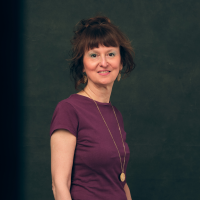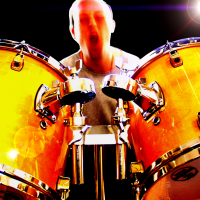Home » Jazz Musicians » Elis Regina
Elis Regina
Born in Porto Alegre, Elis Regina started her singing career at age 11, singing on the radio. In 1959, she signed her first professional deal with the radio station Rádio Gaúcha, and in the following year she moved to Rio de Janeiro, recording her first single for Continental.
In 1961, the same record label released her first LP, "Viva a Brotolândia", which featured calypso and rock ’n’ roll tunes. After that, she returned to Porto Alegre, remaining until 1964, when she finally moved back to Rio de Janeiro. Elis Regina sang at the famous Bossa Nova nightclub Beco das Garrafas. At that time, Elis Regina was hired by TV network TV Rio, where she performed with other famous musicians, such as Jorge Ben and Wilson Simonal. Elis Regina became known nation wide in 1965, when she performed "Arrastão", by Edu Lobo and Vin�-cius de Moraes, at the first Brazilian Popular Music Festival. After that, Elis Regina recorded "Dois na Bossa" in collaboration with Jair Rodrigues. This record was so popular that they released volumes 2 and 3.
Together with Jair Rodrigues, Elis Regina took part in one of the most important Brazilian Music TV shows, O Fino da Bossa, aired in 1965 on TV Record. This program was responsible for launching musicians and hit songs, such as "Canto de Ossanha" (Baden Powell/ Vin�-cius de Moraes), "Louvação" (Gilberto Gil/ Torquato Neto) and "Lunik 9" (Gil). After that, Elis Regina’s career took off. Her 1966 album "Elis", included the first recording of the song "Canção do Sal", by Milton Nascimento. Elis Regina also helped boosting the careers of composers like Milton Nascimento, Ivan Lins ("Madalena"), Tavito/ Zé Rodrix ("Casa no Campo") and Belchior ("Como Nossos Pais"), by recording their early materials.
She took part in music festivals and political/musical movements, such as the "demonstration against electric guitars", which aimed at protecting the “roots” of Brazilian Popular Music against foreign invasion. Elis Regina’s international career was consolidated in 1969, when she toured around the main European and Latin American capitals. One of her most popular albums is "Elis e Tom" (with Tom Jobim), which was recorded in the United States.
In 1979, she took part in the Montreux Jazz Festival, in Switzerland, and recorded one of her greatest hits, "O Bêbado e a Equilibrista", by Aldir Blanc and João Bosco. These two musicians wrote many of her hits, such as "Caçador de Esmeraldas", "Mestre-sala dos Mares", "Dois pra Lá, Dois pra Cá". Some of Elis Regina’s unforgettable performances include "Upa, Neguinho" (Edu Lobo/ G. Guarnieri), "Águas de Março" (Tom Jobim), "Ponta de Areia" (Milton Nascimento/ Fernando Brant), "Folhas Secas" (Nelson Cavaquinho/ Guilherme de Brito) and "Romaria" (Renato Teixeira).
Read moreTags
Elis Regina: Live in Montreux

by William Grim
Leila Pinheiro and Joyce are better musicians; Gal Costa is better looking; and Luciana Souza has a more distinctive style--but in last half century of Brazilian popular music, there has been no singer who could compare with the ineffable qualities that made Elis Regina a legend in her own time.
Live in Montreux documents of Elis Regina's performance at the 1979 Montreux Jazz Festival, accompanied by a band led by her husband, the legendary Brazilian pianist Cesar Camargo ...
Continue ReadingElis Regina: Little Pepper

Source:
JazzWax by Marc Myers
Elis Regina was one of Brazil's most beloved singers. Born in Porto Alegre, a major port city in the southern part of the country, Regina was a child singing star on local radio. In her teens she moved to Rio de Janeiro to record her first album. When she was 20, she competed in her first festival singing contest, where she sang an impassioned rendition of Arrastão by Edu Lobo and Vinícius de Moraes. Because the 1965 festival was broadcast ...
read more
Elis Regina's Biography "Furacão Elis" Set for English-Language Internet Debut

Source:
Michael Ricci
Connectbrazil.com is pleased to announce the launch of its new internet home for the life story of legendary Brazilian singer Elis Regina, the English language translation of the full-length book Furacão Elis. The free, web-based text will be launched from its new permanent home as part of the Connectbrazil.com network on Thursday, March 17th in honor of her birthday. The book itself is an interesting story. Carefully researched and authored by Regina Echeverria, Furacão Elis was first published by Editorial ...
read more
An Elis Regina Trove

Source:
Rifftides by Doug Ramsey
The world may have known about it, but I just stumbled upon a rich cache of Elis Regina video clips on YouTube. They come from a 1973 Brazilian television special. The program seems to have been available on a DVD that quickly disappeared from the market. Amazon, CD Universe, Netflix and several other sources say it is currently unavailable and, according to Amazon, “we don't know when or if this item will be back in stock." That is a pity, ...
read more












.jpg)




























.jpg)












